How many queer lives have been snuffed out too soon? How many love stories have sunk to the bottom of lakes, long forgotten? Those are just two of the questions writer and director Alan Ball exhumes with his new film, Uncle Frank.
"It's about the challenges of being an authentic person in an increasingly inauthentic world," the out writer and director tells The Advocate. Picked up by Amazon Studios, the film stars Paul Bettany, Sophia Lillis, Peter Macdissi, Judy Greer, Steve Zahn, Lois Smith, Margo Martindale, and Stephen Root.
Lillis's Beth, a pensive, well-read young woman stifled by her small South Carolina town and conservative family, narrates the story. She heads off to New York to study at the university where her Uncle Frank (Bettany) teaches literature. As she connects with him, she discovers the alternate life he's kept hidden from his family: He's gay. Just as they develop their own relationship, they get the news that Frank's father (Beth's grandpa) has died. Now the two must make the journey back into the thick of the Deep South, where secrets never stay buried.
The film first began to take shape in Ball's mind "years ago, when I came out of the closet to my mother. She grabbed her head like she thought it would fly off into space if she didn't hold on to it and said, 'Oh, God has dealt me some blows in this life.' I started laughing because it was so absurd, and then she said, 'Well, I blame your father for this because I think he was that way too.'"
That exchange shook Ball, whose father died when he was young. The next day, he and his mother visited a relative in a North Dakota state park, and when they arrived at the local lake, his mother turned to him and nonchalantly said, "That's where Sam Lassiter drowned."
"Who is Sam Lassiter? I've never heard of this person," he asked his mother.
"Well, he was a real, real, real good friend of your dad."
Ball was floored at what he perceived his mother to be implying. "Later, I found out that after Sam drowned, my father accompanied his body on a train back to their hometown of Asheville, N.C., for the funeral. They were 18, 19 years old, I believe. I don't know if my father was gay, because he was already dead and I couldn't talk to him about it. But the idea of a young man whose lover committed suicide just sort of stuck in my head for years and years and percolated."
"Then one day I just started writing it," Ball says. Uncle Frank took form as a moving coming-out story, highlighting the effects of post-traumatic stress disorder and addiction on a gay man growing up in the South in the '50s.
All these decades later, the truth is bound tight and lying six feet under. "I don't know what happened," Ball points out. "It could very easily be something completely not having to do with being gay, but in my mind, it just sort of became this story." He stresses, "As far as I know, all these characters are fictional."
"Bits and pieces" of Ball's real family are scattered throughout the film. Frank is named after Ball's father and is haunted by his old lover, Sam. Ball's real-life partner, Peter Macdissi, plays Frank's partner, Wally. Even phrases his family used toward Ball when he came out to them made it into the film. "'I just have two words for you: "No problem."' That's what my brother said to me," Ball recalls.
But Ball took care not to make the film another tragic queer epic. "It was important for me to see a couple of gay men who were in a committed relationship who were middle-aged and their relationship didn't necessarily have to end up in the loss of one of them," he says.
Despite its original inspiration, Uncle Frank manages to steer clear of the tropes of some gay classics and instead honors the family.
"So many of the great movies about gay love stories that we've seen over the years, Brokeback Mountain, A Single Man, usually one of them has to die and it has to be tragic that way, or at least they were," Ball says. "I wanted to show a relationship that survives."
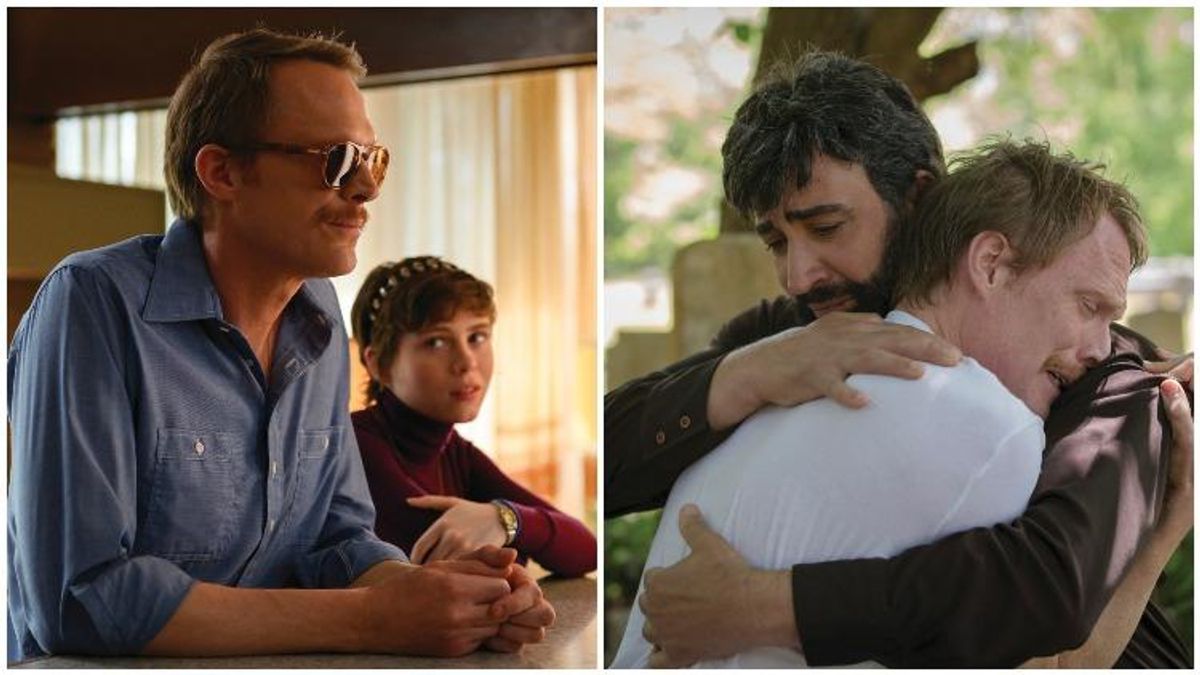

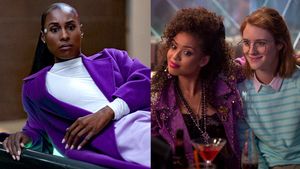





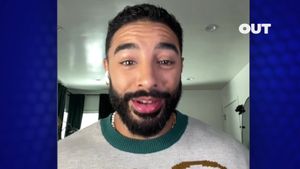






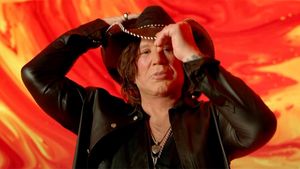







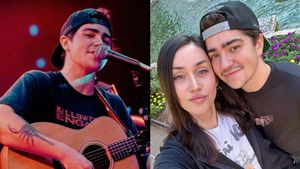
























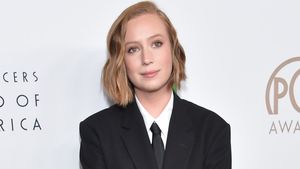

































Fans thirsting over Chris Colfer's sexy new muscles for Coachella